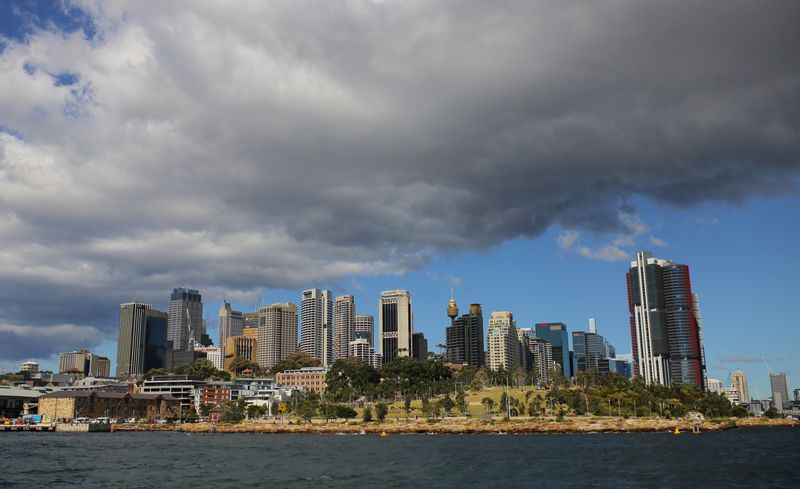SYDNEY (Reuters) - A closely-watched measure of Australian business conditions showed activity stayed pedestrian in January though confidence lifted slightly from its lowest since mid-2013.
National Australia Bank's (AX:NAB) index of business conditions was flat at +3 in January, short of the long-run average of +6.
The survey's volatile measure of business confidence added 1 point to -1, with sales and profitability remaining weak.
One area of worry was the index of employment, which stumbled 3 points to just +1 in January, implying slower jobs growth.
"The picture painted by the first survey of 2020 is broadly similar to that at the end of 2019," said NAB Group Chief Economist Alan Oster.
"While there has been no significant deterioration in overall terms the survey continues to suggest very little to no growth in the private sector."
The impact of the bushfires that intensified steadily through December, hurting tourism and spending at the peak of the holiday period, was felt in the most populous states of New South Wales and Victoria.
"Looking forward, businesses themselves do not anticipate a material improvement with forward orders still weak (and negative) and capacity utilization having fluctuated around its average in recent months," Oster added.
NAB will separately release results of a special bushfire-related survey in coming weeks, it added.
Oster said there was a risk that ongoing weakness in business activity could result in a pull-back in hiring intentions in a disappointing outcome for the country's central bank which is expecting unemployment to fall further.
The Reserve Bank of Australia (RBA) cut interest rates three times last year to a record low 0.75% to help revive growth and inflation. The cuts helped boost home prices and sent the jobless rate sliding to 5.1%.

The RBA kept rates unchanged last week at its first meeting of the year and signaled steady policy in the period ahead.